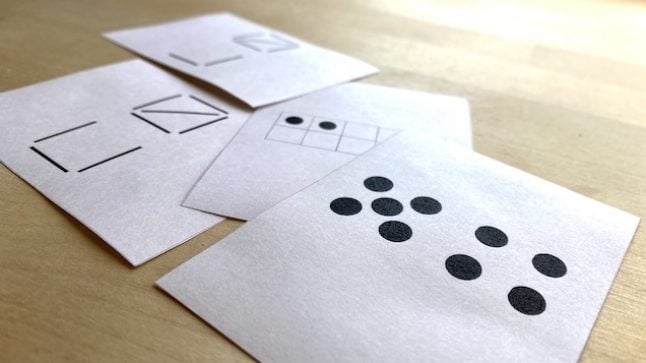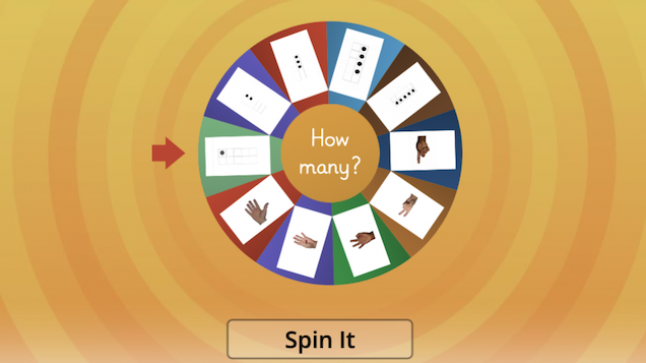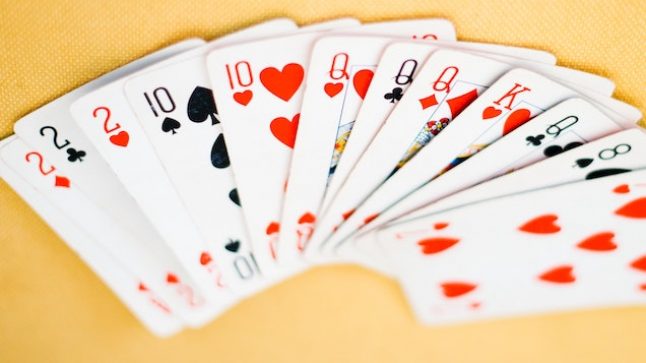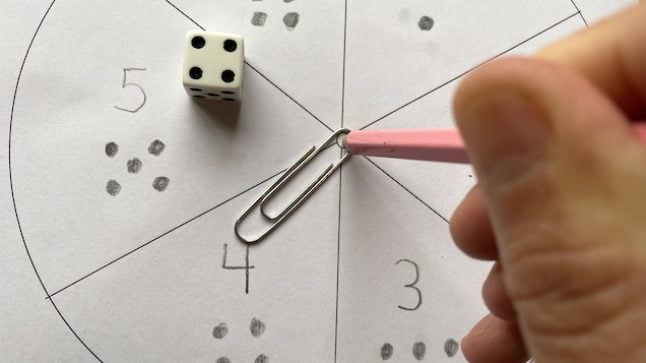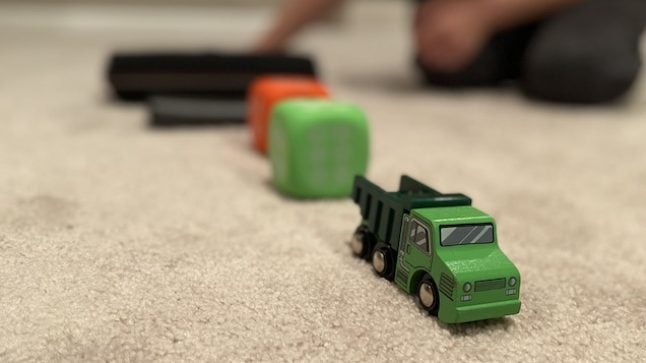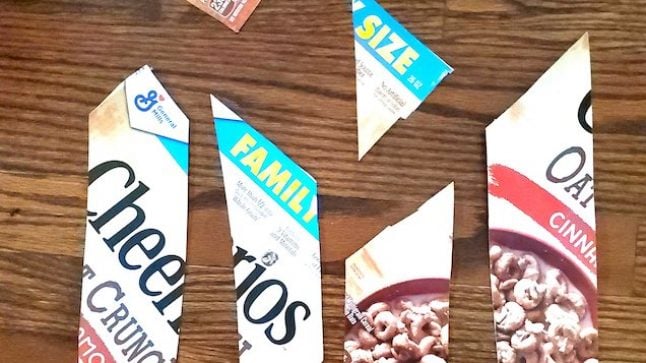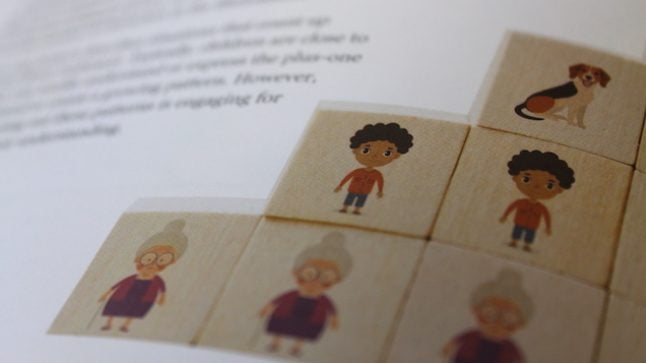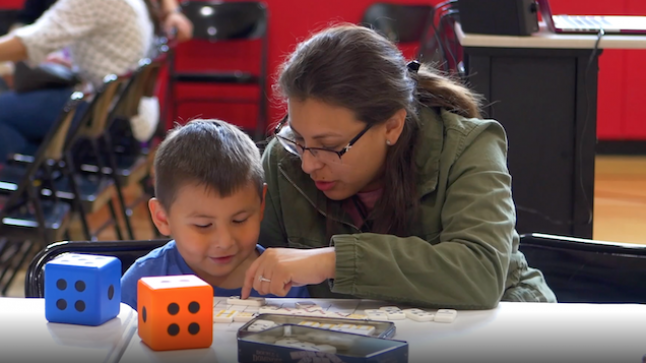Tagged as: Games
Early Elementary and Preschool Math Games to Support Development
Playing games is an engaging, developmentally appropriate way to support children's mathematical learning.
Games are motivating. In kindergarten and preschool math games provide meaningful contexts for children to apply mathematical ideas and skills while reducing the fear of failure and error, since children can always play again.
One of the most powerful things we have done in our classroom to help children enjoy math is to play math games. Because playing 'memory' with dot cards is fun, kids want to do this on their own, and I have seen their fluency with number composition—the idea that four can be one and three or two and two—increase.
Kinder and preschool math games can increase children's access to mathematics. Most games have few language barriers. And children operating at different levels of thinking can play together and learn from each other.
Another benefit of math games is how they can build home/school connections when families are encouraged to play games at home. Share the fun today!
Browse our collection of resources tagged as GAMES.
Series: Ideas at Work
What is a Number Path and How Does It Build Number Relationships?
February 22, 2023
Many of children’s favorite board games follow a path to a goal. Exploring a number path with young children also leads to a goal that is critical for early mathematics: understanding number relationships. What is…
- Topic: Number Sense, Counting
- Age/Grade Level: Pre-K, Kindergarten, 1st Grade
- Tags Games
Series: Focus on Play November 17, 2021
Quantity Cards for Subitizing
Quantity is a particular amount of something, expressed as a number. Quantity cards for young children can have pictures of small sets such as dots, finger patterns, or 5- or 10- frames. The ones we…
- Topic: Number Sense
- Age/Grade Level: Pre-K, Kindergarten
- Tags Subitizing, Play, Games, Family Math, En Español
Series: Focus on Play December 29, 2020
New Use of Quantity Cards for Remote Preschool Math Games
Whether teaching in-person with social distancing or online, the number one question we hear from teachers is how to adapt preschool math games for remote learning. Here are some game ideas that work equally well…
- Topic: Counting, Number Operations
- Age/Grade Level: Pre-K, Kindergarten
- Tags Subitizing, Play, Games, Family Math
Series: Focus on Play June 5, 2020
How to Adapt Math Card Games to Children’s Skill Level
Card games provide meaningful practice of the basic number combinations. These common card games that children learn in school or at home can be revisited many times and can be adapted to children’s own math…
- Topic: Counting, Number Operations
- Age/Grade Level: Pre-K, Kindergarten, 1st Grade, 2nd Grade, 3rd Grade
- Tags Subitizing, Play, Games, Family Math, En Español, download
Series: Ideas at Work May 27, 2020
Math at Your Fingertips: Songs and Fingerplays for Preschoolers
Do you remember enjoying fingerplay songs like 5 Little Monkeys or Un Elefante Se Balanceaba when you were young? You may not have realized that sharing these songs is a great way to bring math…
- Topic: Number Sense, Counting
- Age/Grade Level: Pre-K, Kindergarten
- Tags Gesture, Games, Family Math, En Español
Series: Ideas at Work May 26, 2020
Get on the Right Path: Make Your Own Number Sense Activities
Path games are fantastic ways for families to spend time together and have fun while doing math. Path games develop number sense, counting skills and, depending on children’s ages and the tools you use, computational…
- Topic: Number Sense, Counting
- Age/Grade Level: Pre-K, Kindergarten, 1st Grade
- Tags Games, Family Math, En Español
Series: Ideas at Work May 25, 2020
Games to Play at Home Using Attributes for Math Thinking
Language and math have a lot in common! For example, every time you describe something—as red, tall, sticky, or loud, for example—you are helping to define and categorize things. And defining and categorizing is huge…
- Topic: Sets
- Age/Grade Level: Pre-K, Kindergarten, 1st Grade, 2nd Grade, 3rd Grade
- Tags Games, Sorting, Attribute, Family Math, En Español
Series: Ideas at Work April 24, 2020
DIY Puzzles Develop Spatial Thinking
Jigsaw puzzles are a great way for children to develop their spatial thinking and problem-solving skills. Children enjoy doing all kinds of puzzles and making ones from materials found around the house keeps it fresh…
- Topic: Spatial Relationships
- Age/Grade Level: Pre-K, Kindergarten, 1st Grade, 2nd Grade, 3rd Grade
- Tags Games, Family Math, En Español
Series: About the Collaborative September 11, 2019
New Book Tells Where to Find Math Fun in Books, Games, and Routines
Books, games, and routines are a natural entry point for math fun in the early years. A new book tells how to tap into children's curiosity to explore the math that is found in everyday…
- Age/Grade Level: Pre-K, Kindergarten, 1st Grade
- Tags Games
Series: Focus on Collaboration June 19, 2019
School Event Engages Families in Early Math Learning
Families play a fundamental role in shaping children's interest and skills in math. Schools can help connect the math that exists both in and out of school and nurture families' positive relationship to math.
- Age/Grade Level: Infants, Toddlers, Pre-K, Kindergarten, 1st Grade, 2nd Grade, 3rd Grade
- Tags Games, Family Math
Do the math.
Free videos.
Free newsletter packed with ideas.
Free professional learning modules.

